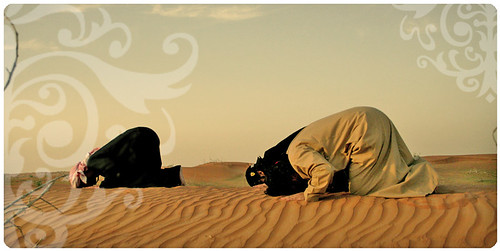“If Allah were to punish people for their wrong actions, not a single creature would be left on Earth.” (Qur’an, 16: 61)
In this article, we will be talking about Allah’s great Love and Mercy towards human beings in regard to the following five points in brief…
1- The creation of human beings.
2- Human beings were created sinless.
3- The way people’s good and bad deeds are recorded.
4- Repentance.
5- Deeds that wipe sins out.
And lastly, a brief word about those whose repentance won’t be accepted by Allah.
1- The creation of human beings
People will see Allah’s grace upon them, as well as His eternal mercy and compassion, when they reflect on how they were created, received life, and have been carefully protected from the moment of their birth until this very moment.
Allah calls upon people to reflect on their creation in the following verse:
“Does not humanity recall that We created it when it was nothing?” (Qur’an, 19: 67)
Allah places the fetus in the most protective situation, thereby preventing the resulting child from becoming disabled or experiencing pain and suffering.
Whatever a baby needs was created billions of years ago.
From the air that he breathes to his mother’s milk that contains every nutrient he requires, everything is ready for him.
Every person’s body is protected throughout their life within the faultless system that Allah has created.
For example, each person’s heart beats without stopping, even though a person does nothing to ensure this.
If he had to ensure that his heart beat every second of his life, his life would become unbearable, for he would be unable to sleep, eat, or do anything else but think about his heart beating.
However, Allah has ordered each persons’ heart to beat from the moment of life to the moment of death.
As a result, He ensures that each person’s heart will never stop beating, even for a second.
A person has no final control over his or her body, despite asserting the opposite.
Our Most Glorious Lord is the sole controller of each part of a person’s body.
A person cannot independently control and manage the blood traveling with great speed, how much blood the heart pumps, how long it takes to coagulate, and all of the various systems (e.g., respiratory, digestive, immune, nervous, and so on) existing within his body.
A person is dependent upon Allah for everything, as Allah reveals:
“O humanity. You are the poor in need of Allah, whereas Allah is the Rich Beyond Need, the Praiseworthy.” (Quran, 35:15)
Every morning when you wake up, you see that your body works perfectly so that you can live. You breathe with ease, and see a colorful world without exerting the slightest effort.
You will hear noises clearly, sense all the smells with ease, and eat whatever you desire. You do not have to focus and dwell on where the vitamins that you consume in your food are sent, how your immune system operates and interacts with microbes and viruses, how your brain produces images of a piece of furniture, or any other details.
Without any exertion, you can recall what you did yesterday or many years ago and store all of this information in your memory.
Most importantly, despite having a body that operates according to sensitive balances, you will be in good health, for Allah is constantly controlling all of your systems.
This is why people should reflect on the faultless systems and innumerable blessings that our Lord has bestowed upon them.
As Allah reminds us in the Qur’an:
“O humanity. What has deluded you in respect of your Noble Lord—He Who created you, formed you, proportioned you, and assembled you in whatever way He willed?” (Quran, 82:6-8)
Therefore, if a person were to look at his body, a great deal of evidence could be found to lead him to acquire a profound and great love of Allah.
In addition, the universe contains many details, all of which represent innumerable blessings bestowed on people.
All of these extraordinary blessings are created and protected by our one and only Lord: Allah.

















.jpg)




